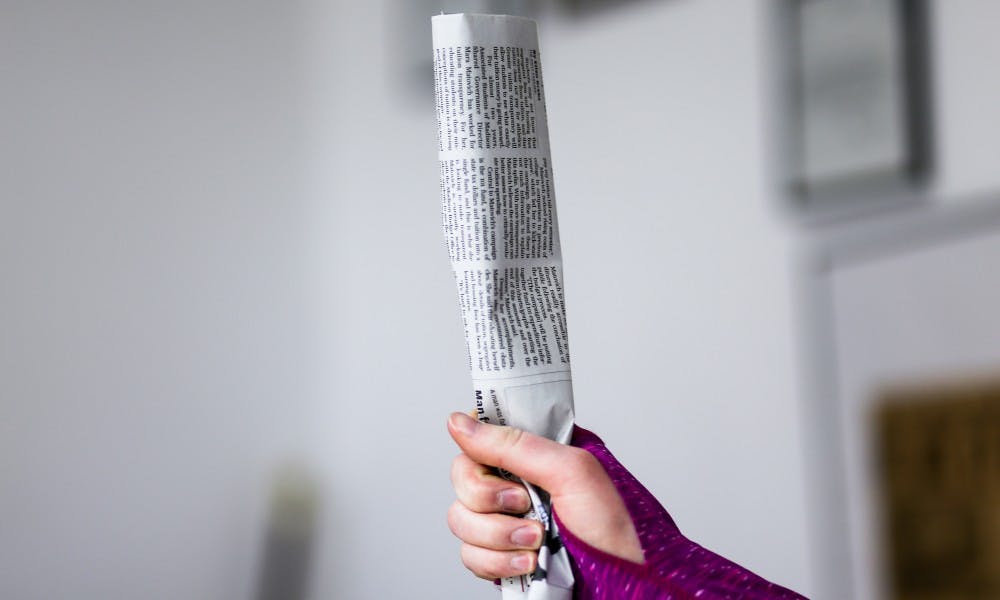The summer before high school, I read "1984" by George Orwell. As I was still grasping the English language and needed lots of assistance in understanding the content, it was a challenging yet rewarding novel. I began to uncover the meanings behind Orwell’s words in the fictionalized dystopia. There were many things in the book that captivated my attention, yet there was a particular scene when the protagonist was captured, interrogated and forced to accept a lie as a fact. While I was reading at the time, I thought it was a very dramatic, rather extreme expression of some failing human cognitions, but it seems to be a very real and familiar flow of minds that surrounds us today.
Our world is full of information. However, it is an important skill for the public to be able to distinguish between credible and not credible sources. When news is delivered at an almost instant pace, it is important for fact checking and timeliness to find a common ground, as it is imperative that media outlets present correct information to the public.
However, minor fact checking is not the only problem facing the media today. How sources portray and interpret facts has a massive influence on the public’s perception of current events. This idea of slant or bias has come into play frequently since President Donald Trump has assumed office. Trump has tweeted multiple times about the so-called fake news, citing media outlets such as The New York Times, NBC News, ABC News, CBS News and CNN. He even went so far as to call these outlets the “enemy of the American people.”
The term “fake” means “one that is not what it purports to be,” according to the Merriam-Webster dictionary. The spread of incorrect information through media could be detrimental as it misleads people into further trouble. Therefore, it is important that if the goal of media is serving the population with better knowledge, it should adhere to a strict standard of collecting and publishing information. As I have mentioned before, it is oftentimes difficult to distinguish between facts and lies.
The same dictionary defined the word “fact” as “a piece of information presented as having objective reality or an actual occurrence.” Both are interchangeable depending on how we interpret and portray them to be. If I think and interpret something did not happen at all, then it becomes a lie to me even if it may have occurred in real life or a thing could not have happened and I may believe it to be have taken a place. Depending on where I came from, how I was educated, or what styles of information I have been presented with, I may have a very different opinion on what is fact or what is fiction.
What is even more powerful is that if I am presented with such a thing repeatedly in the same manner, I may believe it to be real, just as the protagonist in the world of "1984" accepted five as the answer to the question two plus two. This has happened and is happening in totalitarian regimes across the globe. As we know such tragedies of the totalitarian governments are the results of our humanity, we should be aware of the fact that we could be committing such wrongs while not being alerted of it ourselves.
Instead of labeling which sources are fake and which are truthful, as there always is a presence of bias and differences in portrayal, it is best to collect varying information of the same content from different sources to make the most sense out of coverage. There will always be differences between sources, yet they should all share a common goal of getting across important information to readers.
So, wouldn’t it be a better use of time and resources to take all accounts in story if they all share a convincing motivation to publicize such information? They must not have wasted resources if they only wanted to spread out the useless thing. Then we can compare accounts, find connections and disconnections to determine what is the fact that we should obtain to better ourselves in a logical and convincing way.
Things exist and behave in certain ways because they have a purpose. We should maximize the qualities of our lives by adhering to the reasonable intention of the existence of certain things instead of abandoning and denying the importance of the matter.






